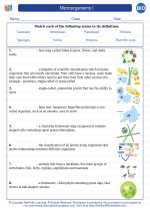Thymus: Structure and Function
The thymus is a specialized primary lymphoid organ of the immune system. It is located in the upper part of the chest, just behind the sternum and between the lungs. The thymus is most active during the early years of life and gradually decreases in size and function with age.
Structure of the Thymus
The thymus is composed of two lobes and is divided into lobules, each consisting of an outer cortex and an inner medulla. Within these lobules, there are specialized cells, including thymocytes (the developing T-cells), epithelial cells, dendritic cells, and macrophages.
Function of the Thymus
The thymus plays a crucial role in the development and maturation of T-lymphocytes (T-cells), which are essential for the adaptive immune response. It provides a microenvironment for the maturation of T-cells, where they learn to differentiate between self and non-self antigens, leading to the establishment of immune tolerance and the prevention of autoimmune reactions.
Study Guide
Here are some key points to focus on when studying the thymus:
- Location and structure of the thymus
- Cell types present in the thymus (thymocytes, epithelial cells, dendritic cells, macrophages)
- Function of the thymus in T-cell development and maturation
- Role of the thymus in establishing immune tolerance
- Changes in thymus function with age
It's also important to understand the connection between the thymus and the immune system as a whole, and how disruptions in thymus function can impact overall immune function and health.
Remember to review diagrams and illustrations of the thymus to better understand its structure and cellular composition.
Understanding the thymus is essential for comprehending the functioning of the immune system, and its role in maintaining overall health and well-being.
[Thymus] Related Worksheets and Study Guides:
.◂Biology Worksheets and Study Guides High School. Microorganisms I
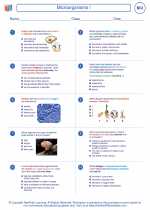
 Worksheet/Answer key
Worksheet/Answer key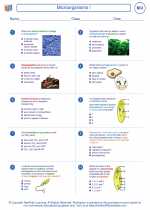
 Worksheet/Answer key
Worksheet/Answer key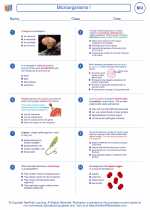
 Worksheet/Answer key
Worksheet/Answer key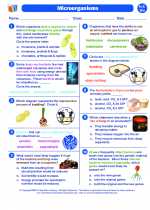
 Vocabulary/Answer key
Vocabulary/Answer key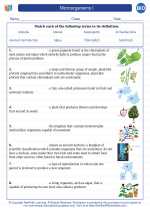
 Vocabulary/Answer key
Vocabulary/Answer key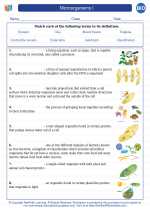
 Vocabulary/Answer key
Vocabulary/Answer key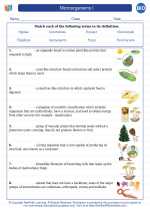
 Vocabulary/Answer key
Vocabulary/Answer key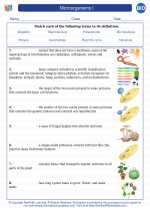
 Vocabulary/Answer key
Vocabulary/Answer key